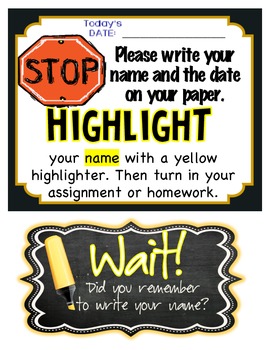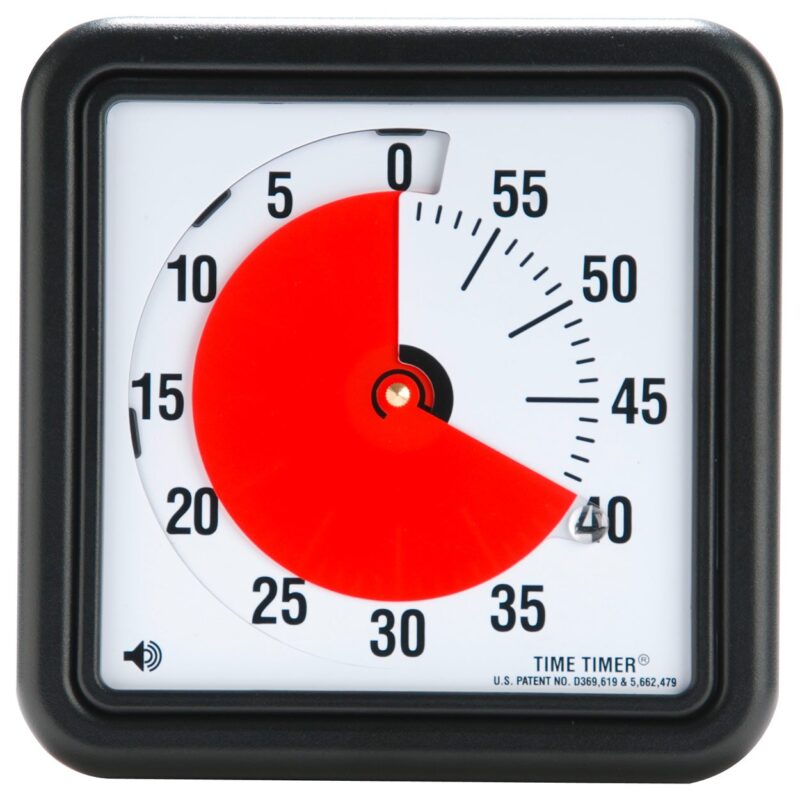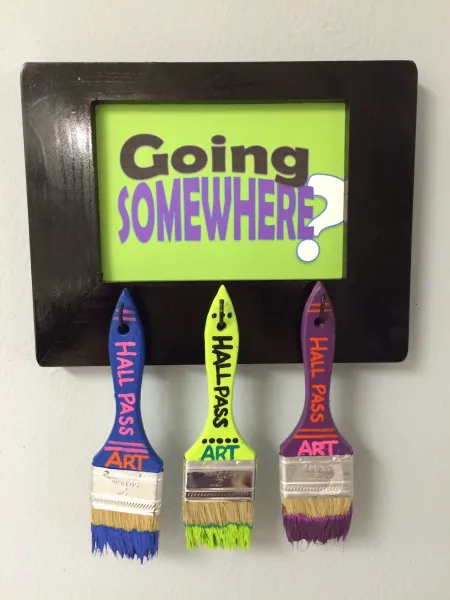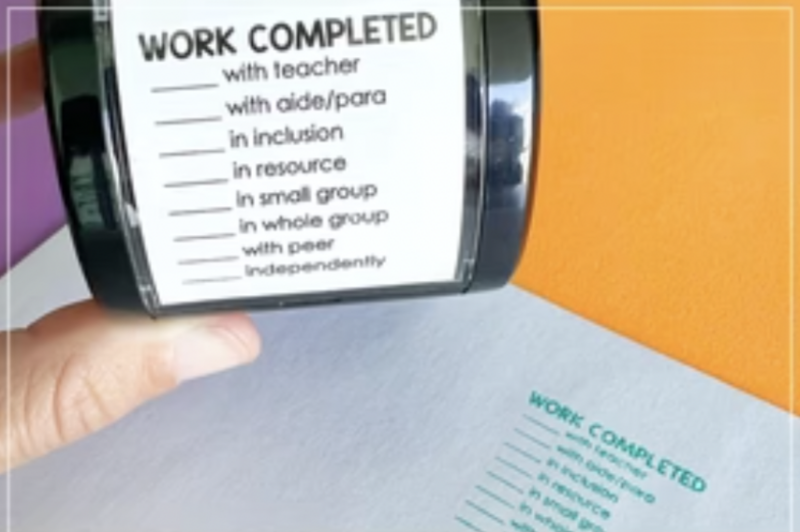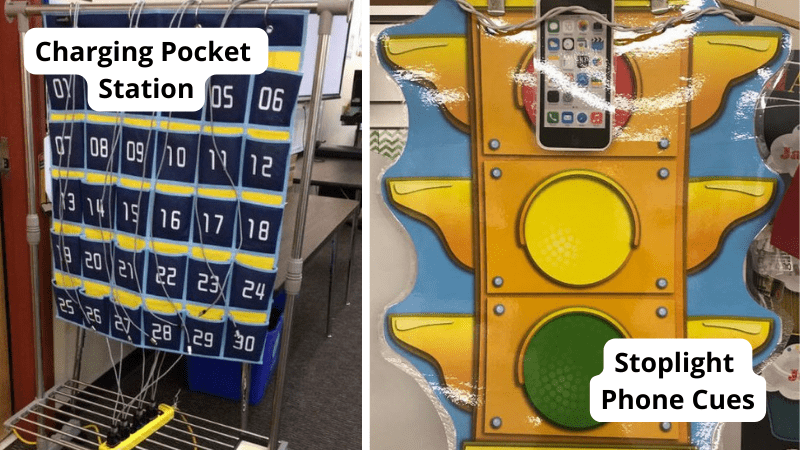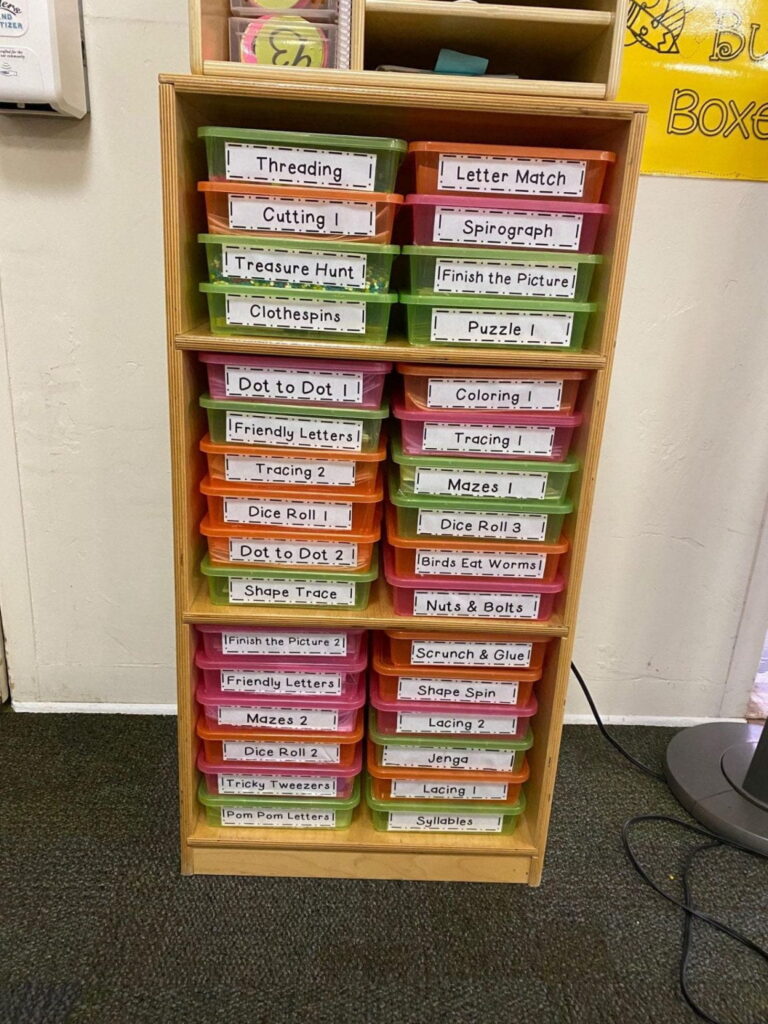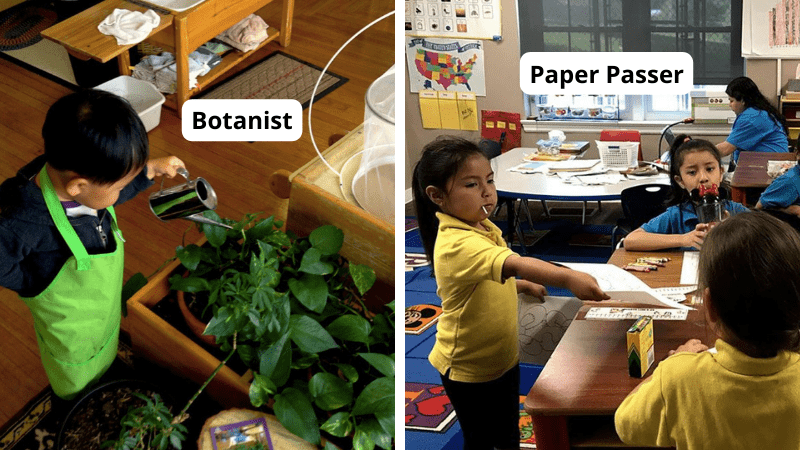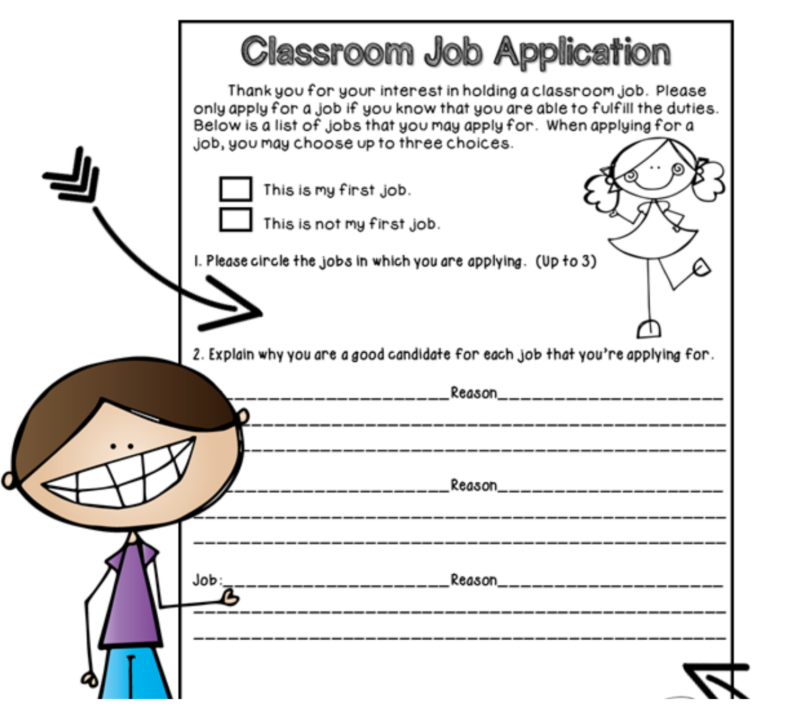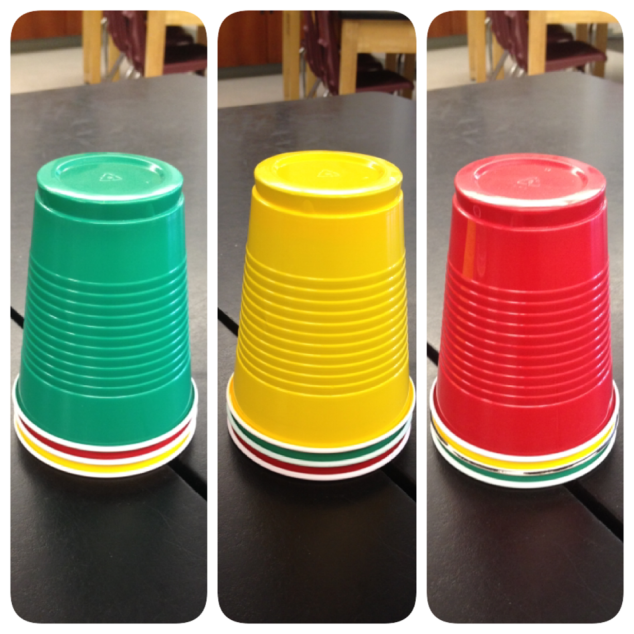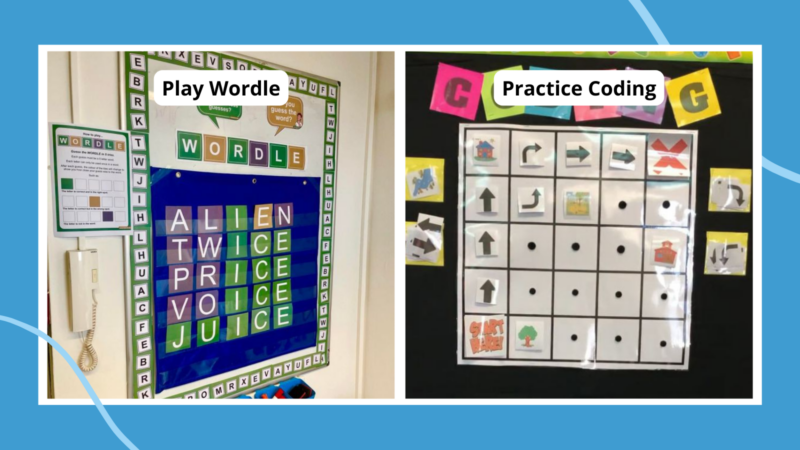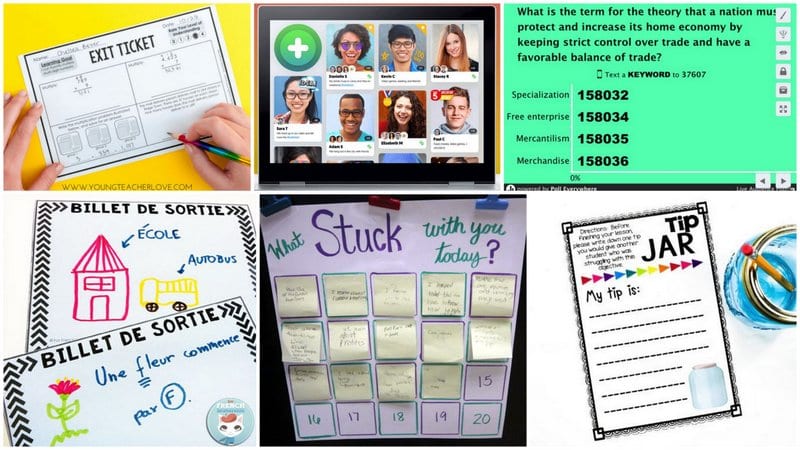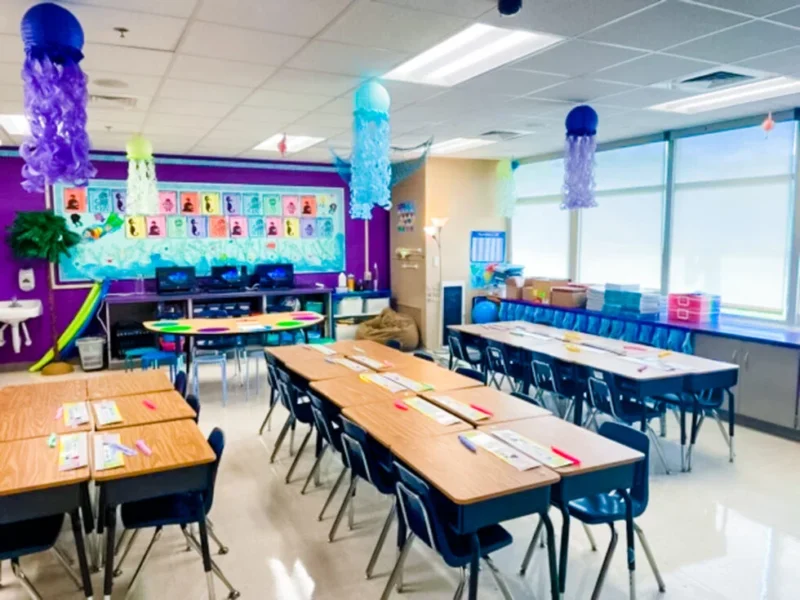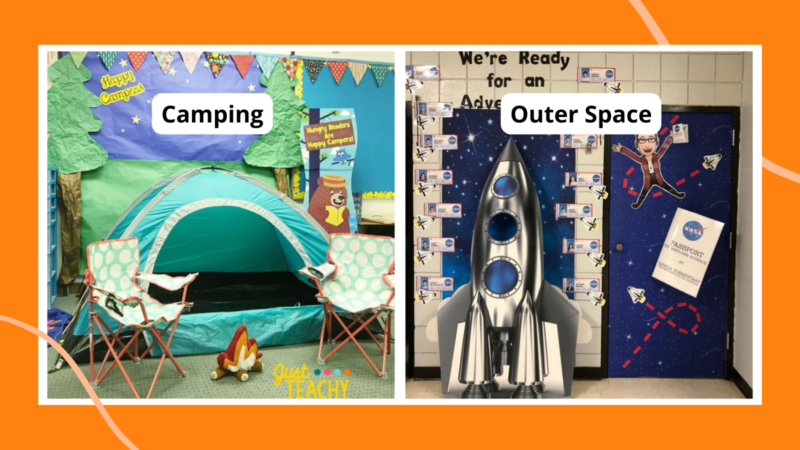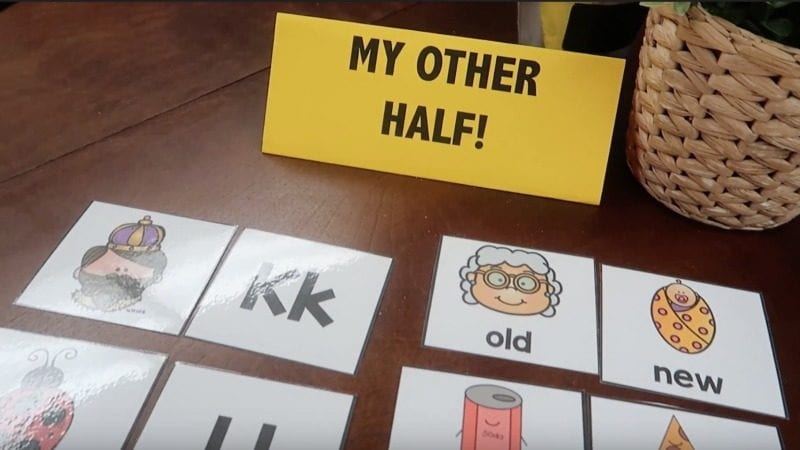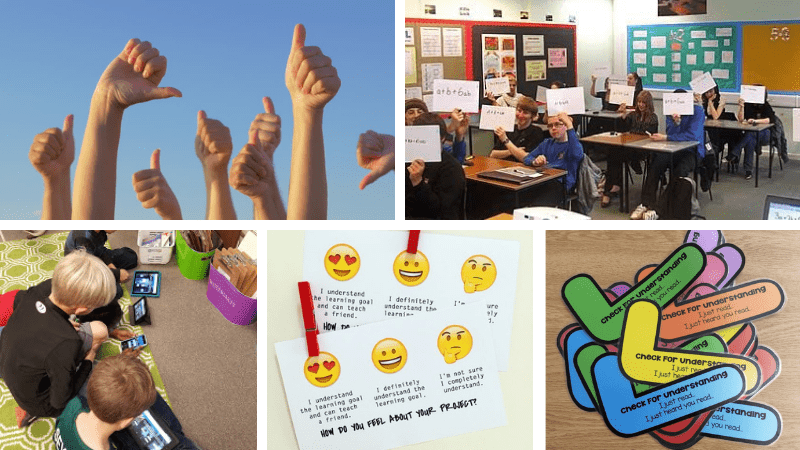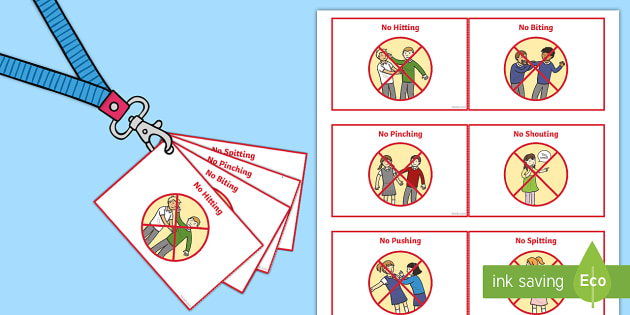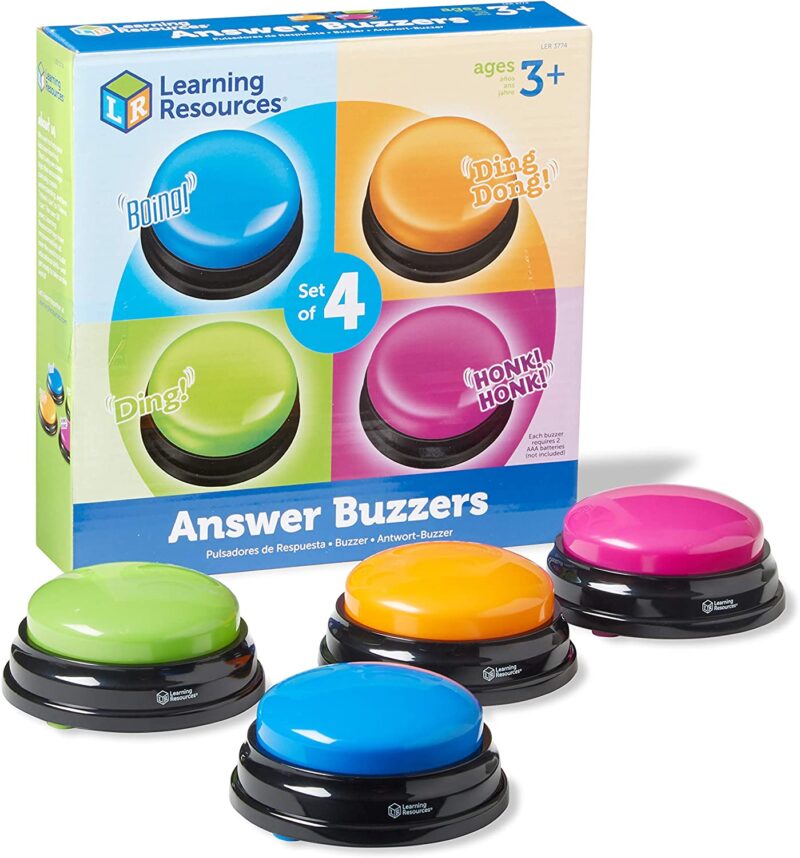This is one of our favorite classroom procedures because it’s easy and cuts back on a big problem. “The no-name papers will disappear,” says Kristin B.W.
Learn more: Free Highlight Your Name Poster at Teachers Pay Teachers
12. Greet every student at the door
“They behave better when they feel cared about,” says Debra M. Don’t we all?
13. Use a visual timer
A Time Timer or visual timer shows how much time is left in an activity, letting students answer the “how much time do we have” question on their own.
Buy it: Visual Timer at Amazon
14. Streamline hall passes
Having a hall pass that works for your class will make your day infinitely easier as students will know if they can leave your class, and other teachers will know the students are permitted to move around the school.
Learn more: Paintbrush Hall Pass/Create Art With Me and Hall Pass Ideas
15. Stamp your feedback
Get a set of self-inking stamps that you can use to give feedback on student work. Or for students who are working on completing work independently or improving behavior, use rubber stamps that address common concerns as well as data tracking for students with IEPs.
Buy it: Rubber Stamps at Mrs. D’s Corner
16. Get their attention
Having a selection of attention-getters that you can alternate, depending on your and your students’ moods, will help you direct students throughout the day.
17. Set up a cell phone charging station
It’s important to establish classroom procedures for cell phones from the beginning. Having a cell phone charging station solves the problem of students checking their phones during instruction. Set up the expectation that students store phones in the station so there’s no back-and-forth about how much charge they have (their phones charging is not the point).
Learn more: Tips and Tricks for Managing Cell Phones in Class
18. Prep task boxes to keep kids busy
Having a set of boxes with coloring sheets, worksheets, extra practice, and games that students can play quietly or independently gives students a way to stay busy and learning while other students are finishing work.
Learn more: Swoop Into Kindergarten
19. Assign classroom jobs
Assign class jobs so that every aspect of the day is taken care of, and so students have ownership over what happens in your room during the day. Set up a way to rotate the jobs each week, and once students have their preferred jobs, keep tabs on who is doing what so it feels fair.
Learn more: Big List of Classroom Jobs
20. Have students apply for class jobs
Once students know what the class jobs are, have them apply for a job to have for the semester or year. You’ll have consistency from week to week, and students will get the experience of applying and managing their responsibilities.
Learn more: Free Student Job Application at Teachers Pay Teachers
21. Communicate with cups
Provide students with a set of green, yellow, and red cups. As they work, they start with the green cup on top. If they feel like they need help, they switch the cup to yellow. And if they are totally stuck, they put the red cup on top. You can respond to the red cups first.
Learn more: Ingenious Ways To Use Solo Cups/K Teacher Tiff
22. Make bulletin boards work for you
Interactive bulletin boards can help you collect exit tickets, give you information about what students think about a question, and provide a fun procedure for students to complete each day.
Learn more: Our Favorite Interactive Bulletin Boards
23. Tighten your exit ticket procedures
Create a predictable way to collect exit tickets so students can spend their time showing what they know instead of figuring out how to pass it in.
Learn more: Exit Ticket Ideas
24. Be strategic with seating
A Double E, Pairs, Four Square—these are all ways to arrange your classroom. Your classroom routines and procedures will go much smoother if the class is set up to facilitate everything from passing papers in and out to lining up and finding groups and partners to work with.
Learn more: Student Desk Arrangement Ideas/Lucky Little Learners
25. Organize classroom procedures around a theme
Who says your theme can’t incorporate procedures? Choose a classroom theme and get creative. If your theme is “Under the Sea,” have seashells on the wall where students can post exit tickets, an octopus cell phone charging station, and a paper return tray decorated like a coral reef.
Learn more: Our Favorite Classroom Theme Ideas
26. Sort students into groups creatively
If students are going to be working together at all, you’ll save time by having a quick procedure to move them from whole group to pairs or teams. One idea: Use pairs of cards to have students match up with their partner. Another idea: While students are seated, place a colored button (one color per group) on each desk. Then, have students stand and find the people who have the same-color button. After they’re finished, have students return the buttons to a jar up front. You can use buttons or any other materials (colored sticks, tiles, etc).
Learn more: Clever Ways To Put Students Into Groups
27. Simplify grading
For informal assessments, let students know if they did or did not meet the assignment expectations. This is easier on you and gives students a quick update that they don’t have to calculate (7/10) or respond to (letter grades).
Learn more: Creative Ways To Check for Understanding
28. Make transitions magical
As students move from place to place in the room, use a “magic” wand and turn them all into snowflakes, unicorns, or yetis. Get silly with it, and as students get more familiar with this procedure, put them in charge of the magic wand.
Buy it: Magic Wand at Amazon
29. Post a visual schedule
A visual schedule outlining your classroom procedures is a great way to help students know what’s coming next. And for students who process visual information easier than auditory, it’s helpful to be able to see the schedule and refer to it throughout the day. An individual visual schedule for a student with autism or processing needs can help them move throughout the day as well.
Learn more: Free Visual Schedule Templates
30. Bring nonverbal reminders wherever you go
Hang nonverbal reminders around your neck/lanyard and use them to prompt students to follow procedures, anywhere you go.
Buy it: Pictoral Communication Cards at Twinkl
31. Buzz in answers
Once students are in groups, have them use answer buzzers to chime in. It reduces noise and calling out.
Buy it: Light and Sound Buzzers at Amazon


